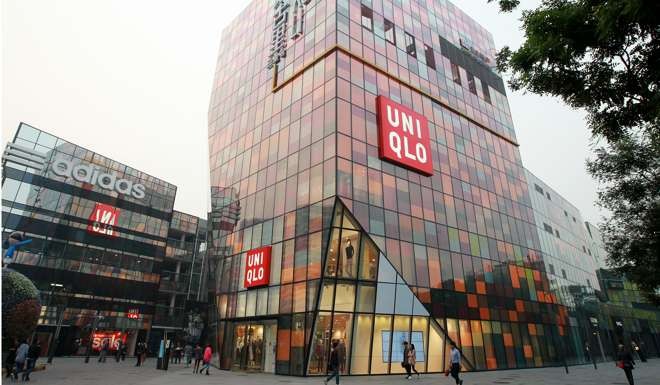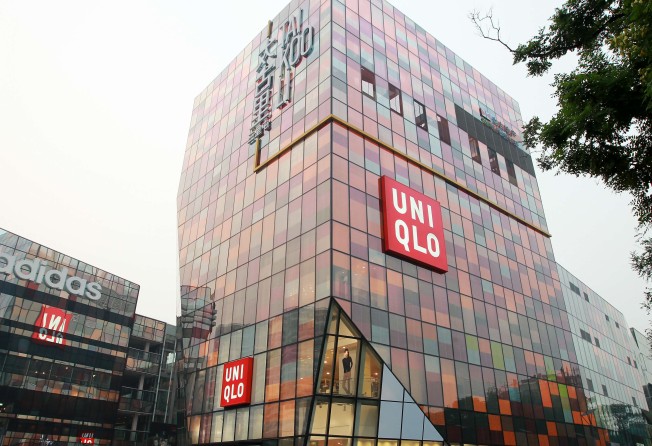
Uniqlo targets 100 more stores in Greater China expansion
Japanese apparel retailer sees opportunity in catering to growing popularity of travel among China’s fast-growing middle class

Shrugging off concerns over a bleak economic outlook, Japanese apparel titan Uniqlo is betting big on Greater China, aiming to open about 100 stores in the region during the coming financial year, with new campaigns intended to tap the Chinese travel boom.
The brand’s parent Fast Retailing plans to reach an “initial target” of near doubling the number of outlets it operates in mainland, Hong Kong, Macau and Taiwan to 1,000, although no time frame for the target was specified.
“Second tier and third tier cities are still somewhere we shall extend our footprint given their considerable spending power,” Tiger Pan Ning, greater China chief executive of Uniqlo told the Post in an interview.
The ambitious China blueprint was laid out when Fast Retailing, one of the world’s biggest clothiers, was negotiating troubled waters, although conditions have been improving since the second half of the financial year that ended in August.

New pricing strategies helped Uniqlo’s Japan business lift its second half operating profit by 38 per cent to 38.3 billion yen (HK$2.86 billion), while Uniqlo International saw its business profit shoot up 81 per cent for the period to 13.6 billion yen, which it attributed partly to China’s growing middle class.
Controlled by Japan’s richest man, Tadashi Yanai, the company’s bottom line had been dampened by disappointing growth in Japan’s domestic economy as well as a strengthening yen that squeezed overseas earnings. In China, an influx of European fast fashion houses such as H&M and Zara has also made the battlefield rather crowded.
Amid the concerns, Fast Retailing’s Hong Kong-listed shares tumbled as much as 36 per cent during the course of the past year. But the share began a U-turn recovery three months ago and has since pared much of the loss, such that it trades only 7 per cent below its level from a year earlier.
Pan said Greater China remains an important market, and that he remains focused on the rapidly evolving lifestyles of Chinese consumers.
“The seven-day Golden Week, for example, can cause sort of a headache for us as more Chinese people now are busy travelling,” said Pan, adding that the trend might hamper sales of retailers like Uniqlo.
A record 500 million Chinese hit the road during their weeklong holiday this year, an increase of 12 per cent from 2015. Analysts predict that travel demand among the rising middle class will remain robust in the mid to long term.
But Pan said he has identified opportunities emerging from China’s tourism boom.
“Ahead of public holidays of this sort, we could have special campaigns marketing Uniqlo clothes that can serve as proper travel gear for those packing up for their getaways, ” he said. “Our ultra-light down jacket is very easy to carry for tourists.”
As a partner with Chinese e-commerce giant Alibaba, the Uniqlo last year generated as much as 637 million yuan in sales during the country’s Single’s Day extravaganza, ranking as the top-selling apparel brand in the event. Pan said the company would seek to develop more online-to-offline solutions going forward.
“As we expand our business in China, it will be possible that consumers can order goods online, and receive them from their nearest Uniqlo store within a minimal period of time,” Pan said. “That will also meet the needs from increasingly mobile Chinese consumers.”